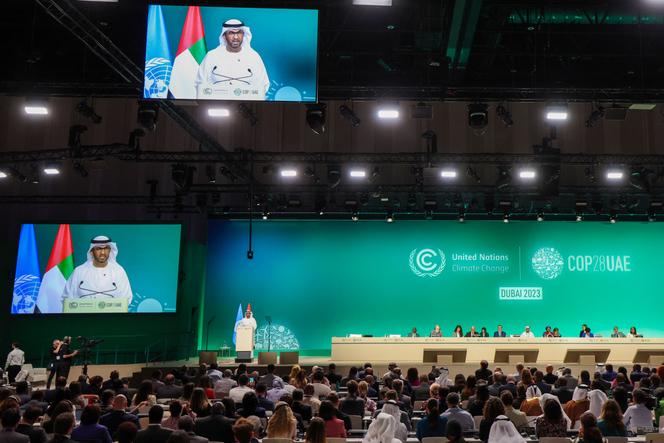


There was applause, a standing ovation and several hundred million dollars in pledges. On the very first day of the 28th World Climate Change Conference, a major decision on "loss and damage" was adopted in Dubai (United Arab Emirates). "Loss and damage" is the sometimes irreversible damage caused by climate change.
Following the recommendations of a transitional committee, representatives from 198 countries ratified on Thursday, November 30, the framework for making a fund to finance this loss and damage operational. The first countries to announce financial contributions followed suit.
"This is a historic decision that sends a positive signal to the world," said Sultan Al-Jaber, president of COP28, with enthusiasm. "Meena Raman, program director of the Third World Network and president of the Malaysian branch of Friends of the Earth, also welcomed the decision. "Adopting this decision is a huge boost to get the COP moving in the right direction."
Developing countries have been calling for a loss-and-damage fund for 30 years. The decision to create one was reached a year ago at COP27 in Sharm El-Sheikh, Egypt. Since then, a transitional committee made up of representatives from countries in the global South and the global North has been working to make it a reality. After a year of extremely tense discussions, a "last chance meeting" finally reached a consensus in early November.
In particular, developing countries agreed that the fund would not be independent, but would be hosted for four years by the World Bank. They also agreed that rich countries would contribute on a voluntary basis.
The most vulnerable countries are bearing the full brunt of the effects of global warming. Both they and civil society organizations are far from satisfied with the terms of the agreement. The civil society organizations pointed out on Thursday that the framework did not include any specific targets for financing or any obligations towards developed countries. All parties agreed, however, that reopening discussions during the COP was undesirable. Doing so risked bogging down the negotiations.
"The agreement that was reached is far from perfect, but it represents a step forward," said Rachel Cleetus, a member of the Climate Action Network and the Union for Concerned Scientists. "We want to see this fund up and running to help those on the front lines of the climate crisis. And we will continue to fight for it to be improved and financed."
You have 60% of this article left to read. The rest is for subscribers only.
